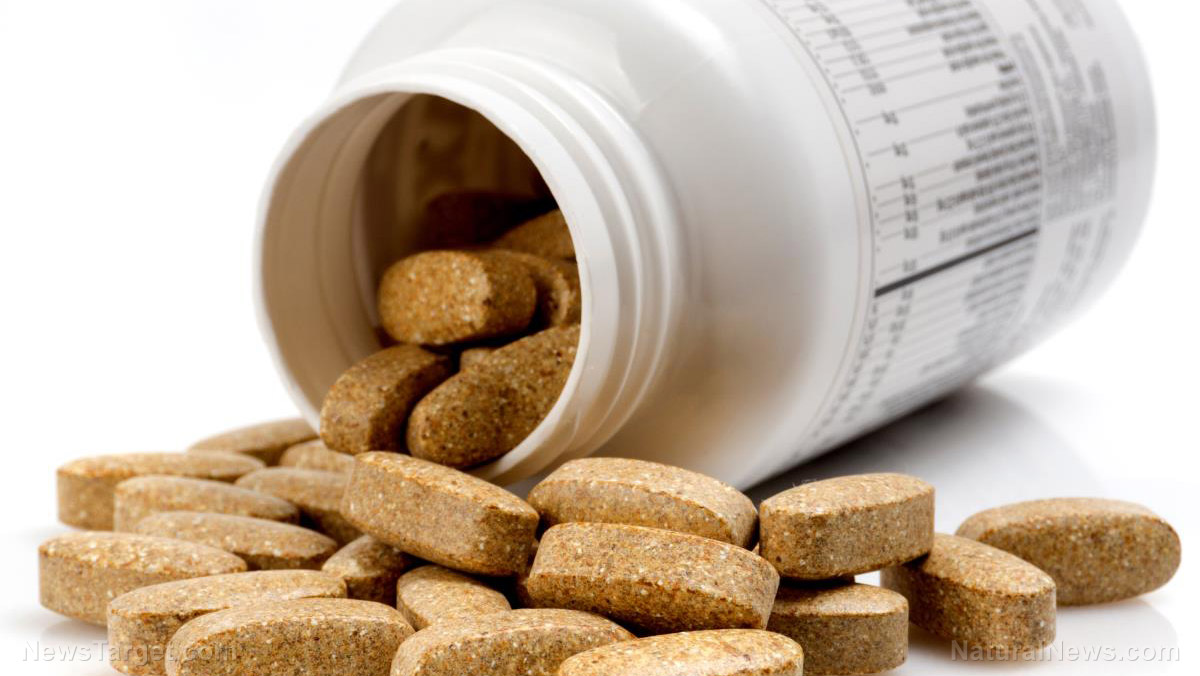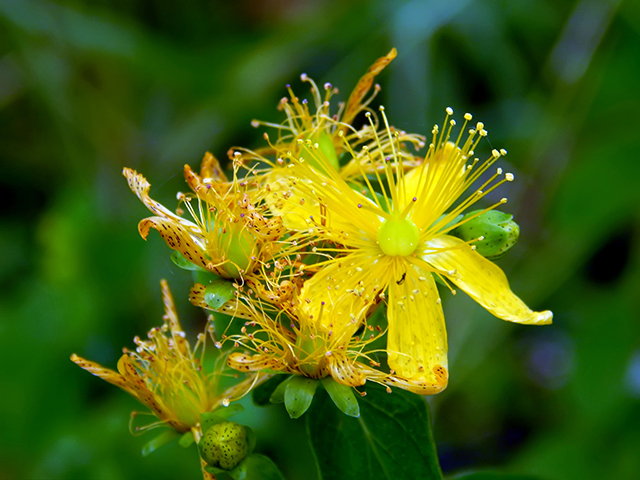Here’s why eating a colorful diet is important for your overall health
08/02/2022 / By Zoey Sky

If you’re struggling to follow a balanced diet, you can try “eating the rainbow.” This means you need to make sure your meals contain a wide variety of nutritious and colorful fruits and veggies.
Every color provides specific protection for plants. According to studies, humans receive similar benefits from eating colorful vegetables and fruit.
Red fruits and vegetables
Red vegetables and fruits contain a variety of phytochemicals such as lycopene. Data shows that superfoods rich in lycopene can help protect against heart disease and some cancers, like prostate cancer.
Foods rich in lycopene include guava, papaya, pink grapefruit, watermelon and tomatoes. Tomato-based products like spaghetti sauce, tomato juice, tomato paste and tomato soup also contain lycopene.
When cooking tomato-based products, use a small amount of fat like olive oil to help your body absorb lycopene.
Here are some nutritious red fruits and vegetables to add to your regular diet:
- Beets
- Cherries
- Chili peppers
- Radishes
- Raspberries
- Red Apples
- Red cabbage
- Red grapes
- Red onion
- Red peppers
- Red potatoes
- Rhubarb
- Strawberries
- Tomatoes
- Watermelon
Orange and yellow fruits and vegetables
Orange and yellow fruits and vegetables contain powerful antioxidants like vitamin C, along with bioflavonoids, carotenoids and phytochemicals.
Deep orange fruits and veggies contain beta-carotene, a disease-fighting antioxidant. According to research, beta-carotene may have a role in reducing cancer and heart disease risk.
Beta-carotene can also help boost your immune system, promote good eyesight and slow the aging process.
Add these tasty and healthy orange and yellow fruits and vegetables to your regular diet:
- Apricots
- Butternut squash
- Cantaloupe
- Carrots
- Corn
- Grapefruit
- Lemons
- Mangoes
- Nectarines
- Oranges
- Papaya
- Peaches
- Pineapples
- Pumpkin
- Yellow apples
- Yellow peppers
- Yellow raisins
Green fruits and vegetables
Green vegetables are full of powerful phytochemicals like lutein and indoles. Leafy green veggies are full of chlorophyll, an energizing and alkalizing compound.
Eat lots of green fruits and vegetables such as:
- Artichokes
- Asian greens
- Asparagus
- Avocados
- Broccoli
- Brussels sprouts
- Celery
- Cucumbers
- Green apples
- Green beans
- Green cabbage
- Green grapes
- Kiwi
- Leeks
- Limes
- Okra
- Pears
- Peas
- Spinach
- Zucchini
Lutein is a potent antioxidant and data says it can help protect your eyes and maintain good vision.
These nutritious green fruits and vegetables are rich in lutein:
- Broccoli
- Collards
- Green peas
- Honeydew melon
- Kale
- Kiwi fruit
- Romaine lettuce and other leafy green vegetables
- Spinach
According to research, indoles can help fight against some cancers like breast and prostate cancer.
These superfoods are rich in indoles:
- Arugula
- Bok choy
- Broccoli
- Brussels sprouts
- Cabbage
- Cauliflower
- Kale
- Rutabaga
- Swiss chard
- Turnips
- Watercress
Blue and purple fruits and veggies
Blue and purple fruits and veggies contain anthocyanins and vitamins and minerals like fiber, manganese, potassium and vitamins B6, C and K1.
Blue and purple fruits and veggies are anti-inflammatory and antioxidant. They can help boost your heart health and lower your risk of neurological disorders.
Additionally, blue and purple superfoods can help boost brain function and lower your risk of Type 2 diabetes and certain cancers.
Here are some blue and purple superfoods to add to your diet:
- Blueberries
- Blackberries
- Concord grapes
- Eggplant
- Elderberries
- Red/purple cabbage
- Plums
Dark red fruits and veggies
Dark red fruits and veggies contain phytonutrients like betalains and vitamins and minerals such as fiber, folate, magnesium, manganese, potassium and vitamin B6.
Dark red fruits and veggies are anti-inflammatory and antioxidant and they can help lower your risk of high blood pressure. These superfoods can also help boost your heart health, lower your risk of certain cancers and support athletic performance through increased oxygen uptake.
Eat dark red fruits and veggies like beets and prickly pears.
White and brown fruits and veggies
White and brown fruits and veggies aren’t as eye-catching as the other superfoods in these lists, but they contain phytonutrients like anthoxanthins (such as flavonols and flavones) and allicin.
They also contain vitamins and minerals like fiber, folate, magnesium, manganese, potassium and vitamins B6 and K1.
Veggies like garlic and mushroom are anti-inflammatory and antioxidant. They can also help reduce your risk of colon and other cancers and boost your heart health.
Eat more of these brown and white fruits and veggies:
- Cauliflower
- Daikon radish
- Garlic
- Leeks
- Mushrooms
- Onions
- Parsnips
- White potatoes
Follow a colorful diet to boost your overall health.
Watch the video below to learn how to make cucumber, tomato and avocado salad.
This video is from the My Favorite Dish ? ? ? channel on Brighteon.com.
More related stories:
4 Health benefits of cinnamon, a powerful spice that can help reduce blood sugar levels.
10 Superfood sources of biotin to help boost your overall health.
Sources include:
Submit a correction >>
Tagged Under:
food is medicine, food science, fruits, functional foods, health science, healthy diets, natural health, natural medicine, nutrients, nutrition, organics, phytonutrients, plant-based diet, prevention, recipes, vegetables, veggie
This article may contain statements that reflect the opinion of the author
RECENT NEWS & ARTICLES
COPYRIGHT © 2017 PREVENTION NEWS




















